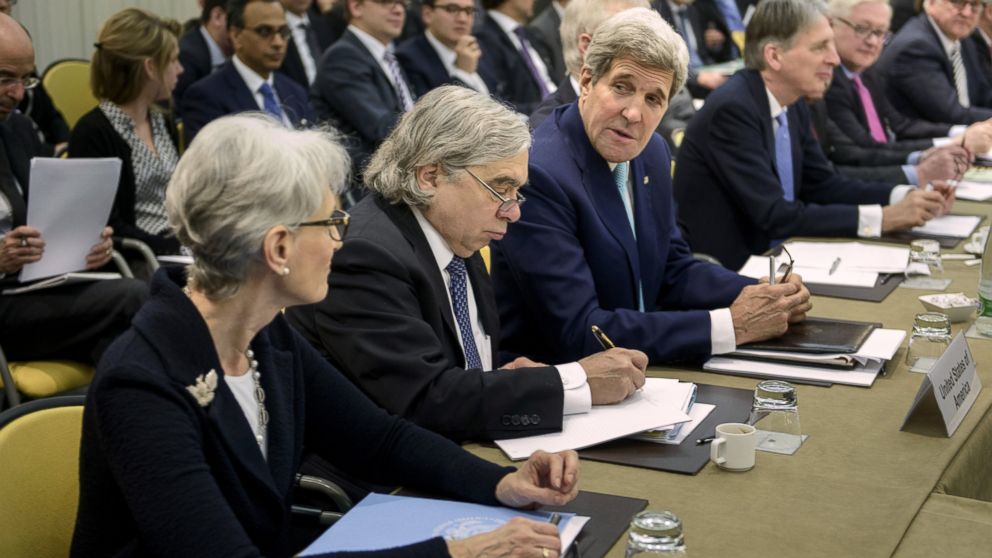Iran Nuclear Deadline Will Pass, But Worth Continuing to Negotiate, US Says – ABC News
Negotiators trying to produce a nuclear accord with Iran will fail to meet their self-imposed March 31 deadline to come up with a broad political understanding about eliminating Iran’s pathway to a bomb, the State Department said today.
“We’ve made enough progress in the last days to merit staying until Wednesday,” State Department spokeswoman Marie Harf said in a statement to reporters in Lausanne, Switzerland, where the talks are being held. “There are several difficult issues still remaining.”
Less than 24 hours ago, Harf said there was a “50/50” chance that they could come to a deal. Officials inside the negotiations are not commenting on why more time is needed, but the sticking points during these talks have been clear.
They’ve included disagreements on how many centrifuges — which are used to enrich nuclear fuel — might remain online at Iran’s deep-buried Fordo nuclear reactor, whether or not Iran will be allowed to continue nuclear research and development for scientific purposes, and what to do with the stockpile of enriched uranium already owns.
Negotiators on all sides have been working towards this deadline since November 2013. That’s when Iran and the so-called P5 +1 (U.S., U.K., France, Russia, China plus Germany) agreed on a Joint Plan of Action (JPA), an interim agreement that paved the way for talks by temporarily halting Iran’s nuclear enrichment program and subjecting it to daily inspections in exchange for the loosening of some economic sanctions.
Though there is still hope in Lausanne that an agreement can be reached, some in Congress are already calling this delay a failure of diplomacy.
“The decision to extend the nuclear negotiations in the face of Iranian intransigence and duplicity proves once again that Iran is calling the shots,” Sen. Tom Cotton, R-Arkansas, said in a statement. Cotton gained notoriety after authoring a controversial letter to Iran’s supreme leader, warning in it that future U.S. presidents have the power to overturn any nuclear deal.
“The best solution is walk away from the nuclear negotiations now and return to a position of strength,” Cotton added. “We should reinstate existing sanctions suspended under the Joint Plan of Action and Congress should act immediately to impose new sanctions. It’s time for the United States to regain the upper hand and quit negotiating out of weakness.”
Two weeks ago, 367 members of Congress, many of them Democrats, signed a letter expressing “grave and urgent” concern over the Iran nuclear negotiations. Many of them have threatened to derail any potential deal by voting to enact tougher economic sanctions on Iran. President Obama has threatened to veto that legislation, but it’s possible Congress could get the two-thirds majority needed to override a presidential veto.
Congress, however, is on a two week recess, which is one of the reasons the Obama administration believes it still has more time. Another reason has to do with the tentative agreements already in place.




